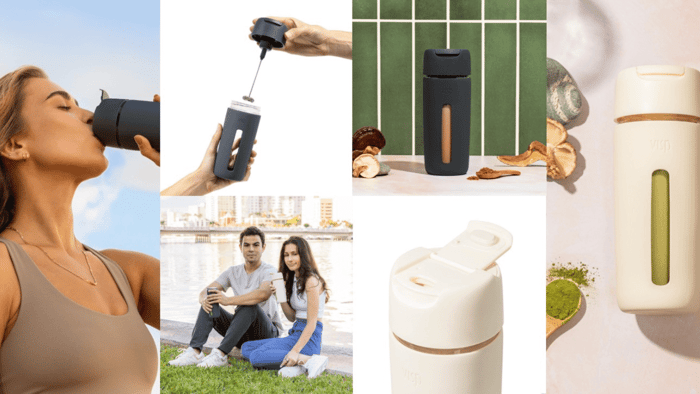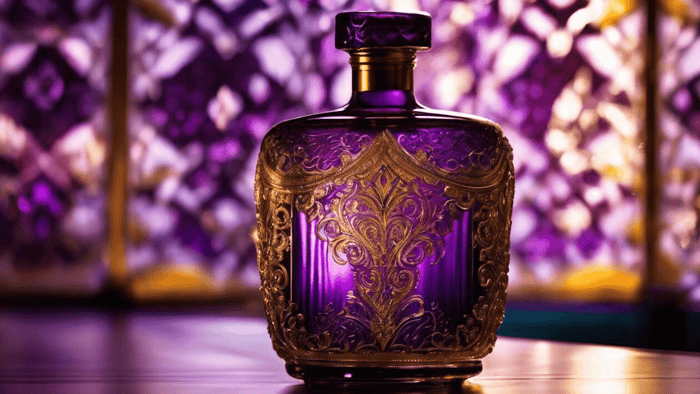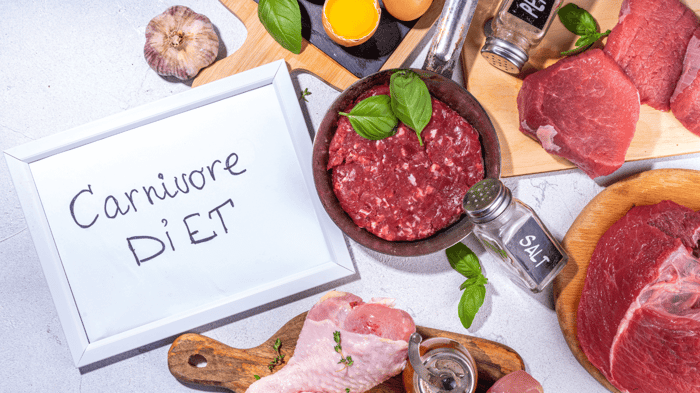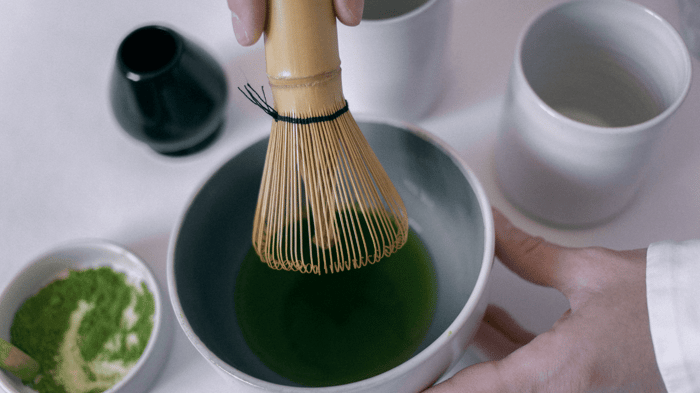Are you caught up in the great mixer debate — what is the best drink mixer, how do electric drink mixers versus handheld ones stack up? As cocktails and homemade beverages continue to grow in popularity, the choice of the ideal tool can significantly determine your mixing experience. Here at Visp, we’re committed to helping you make an informed decision that’s perfectly shaken, not stirred! In this blog post, we delve deep into the world of mixers, comparing performance, cost-effectiveness, ease of use, cleanup process, and more between electric and handheld mixers. Read on to discover which device would be your best drink mixer companion!
Make Amazing Drinks With The Elixir Mixer
The best drink mixer is subjective and dependent on personal preferences. However, this post provides a comprehensive list of some of America's finest drink mixers, each offering unique flavors and versatility for creating delicious drinks at home. Explore our article to discover the best drink mixers that suit your taste and elevate your health, well-being, or entertainment game.
Understanding Electric Drink Mixers
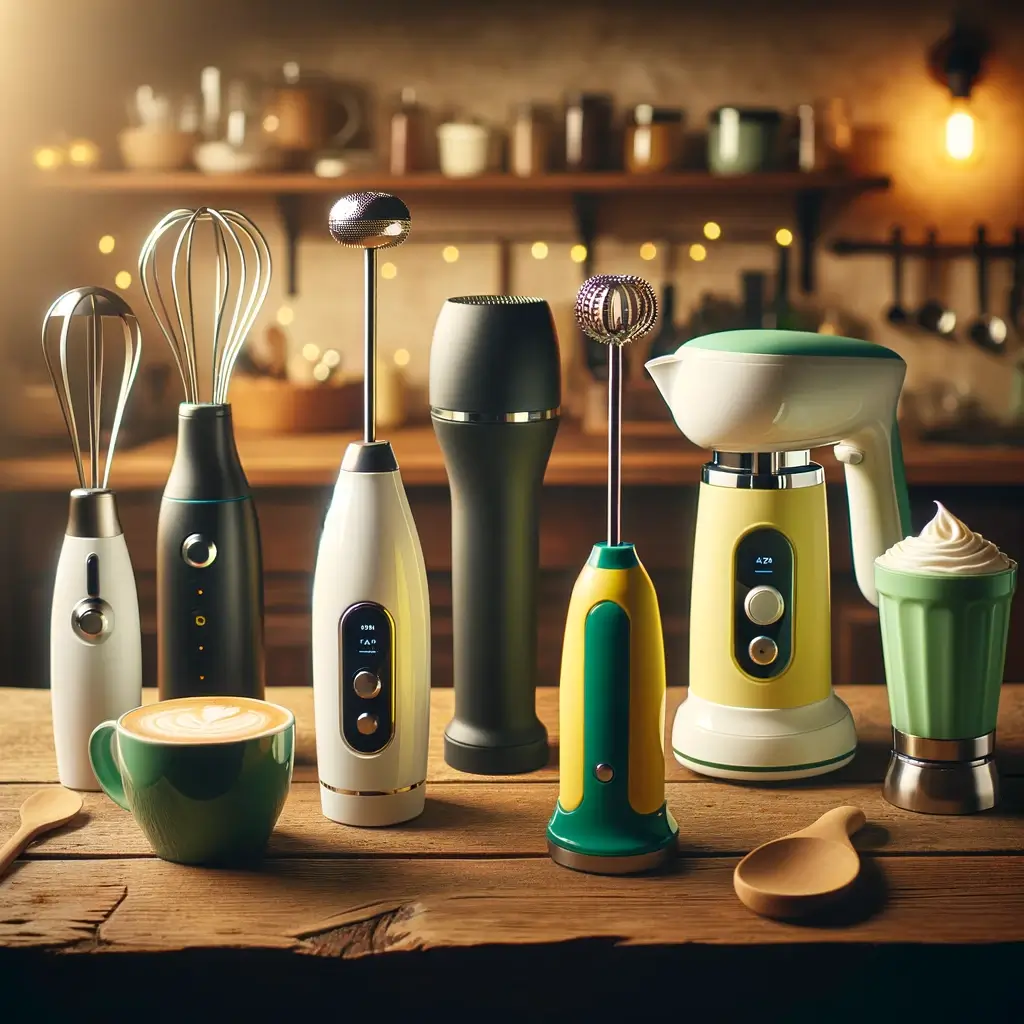
Electric drink mixers are a valuable tool for every home bartender or avid drink enthusiast. These mixers, also known as electric cocktail shakers or electric stirrers, are designed to automate and streamline the process of mixing cocktails and other beverages. They come in various models and designs, offering different functionalities and features.
The principle behind electric drink mixers is simple: they use an electric motor or mechanism to create consistent and even mixing of ingredients in a drink. This eliminates the need for manual stirring or shaking, saving time and effort. With these mixers, you can achieve perfectly blended cocktails with just the press of a button.
One popular type of electric drink mixer is the countertop blender. These powerful machines come with high-speed motors that can crush ice, blend ingredients, and create smooth and frothy textures for your drinks. Countertop blenders are especially useful when making frozen cocktails like margaritas or daiquiris.
Another type of electric mixer is the handheld immersion blender. This compact and portable tool allows you to mix drinks directly in the glass or shaker without transferring them to a separate container. Immersion blenders are excellent for quickly blending ingredients or creating frothy toppings for your drinks.
It's important to note that while electric drink mixers offer convenience and efficiency, they may not be suitable for all types of beverages. Some drinks, like martinis or old-fashioned, require gentle stirring rather than vigorous blending. In such cases, using a traditional stir stick or utensil may be preferable.
Now that we have a basic understanding of electric drink mixers, let's explore some benefits they offer when it comes to mixing drinks.
- Electric drink mixers, such as electric cocktail shakers and stirrers, are valuable tools for home bartenders and drink enthusiasts. They automate and streamline the process of mixing cocktails and other beverages, saving time and effort. There are different types of electric mixers available, including countertop blenders and handheld immersion blenders. Countertop blenders are powerful machines that can crush ice and create smooth textures, making them ideal for frozen cocktails. Handheld immersion blenders are compact and portable, allowing for direct mixing in the glass or shaker. However, it's important to recognize that not all beverages may be suitable for electric mixing, as some require gentle stirring instead. Overall, electric drink mixers offer convenience and efficiency when it comes to creating perfectly blended drinks with just the press of a button.
Top-Rated Electric Drink Mixers
- The Visp Elixir Mixer: The Best Drink Mixer for Healthy, Non-Alcoholic, or Alcoholic drinks!
- Pros:
- Convenience and Portability: The Elixir Mixer is praised for its convenience and portability, allowing users to enjoy smooth beverages on the go.
- Versatility: It is a versatile solution for mixing various drinks, including coffee, protein shakes, green juices, and matcha, offering a mess-free, leak-proof blending experience in a single bottle.
- Time-Saving: Users appreciate the time-saving aspect of the mixer, as it only needs 15 seconds to blend beverages to perfection.
- Eco-Friendly Design: The glass and silicone bottle is a great touch for those looking for a more eco-friendly option
- Cons:
- Not suitable for making smoothies or blended fruit drinks.
- Hamilton Beach 727B DrinkMaster Electric Drink Mixer:
- Pros:
- Versatile, suitable for milkshakes, lattes, and cocktails.
- Extra-large 28 oz stainless steel cup.
- Two-speed settings for more control.
- Cons:
- Vibrates excessively on the low setting.
- Some parts are made of plastic instead of metal
2.
- Bartesian and Bev At-Home Cocktail Machines:
- Pros:
- Bartesian offers more than 40 flavoring pods, each producing a different cocktail.
- Bev by Black & Decker is a robotic drink-making machine, complete with a variety of cocktail options.
- Cons:
- The Bev by Black & Decker is quite large and may not be the most elegant of contraptions.
- Other Options:
- Breville Handy Mix Scraper is a highly rated hand mixer suitable for smooth batters and whipped treats.
- Ninja BN801 Professional Plus Kitchen System is a top-rated blender suitable for drink mixing, offering intuitive controls and four sizable blending containers.
Benefits of Electric Mixers
Electric drink mixers bring numerous advantages to the table when it comes to crafting delicious cocktails:
-
Consistency: Electric mixers ensure consistent blending and mixing of ingredients, eliminating human error and resulting in perfectly balanced drinks every time. This is especially important when replicating classic recipes that require precise ratios.
-
Efficiency: With the push of a button, electric mixers can blend or stir your drink in seconds, significantly reducing the time and effort required compared to manual methods. This makes them ideal for both home use and professional bartending.
-
Versatility: Electric mixers come with various attachments and features that allow you to create a wide range of drink textures and consistencies. Whether you want a smooth and creamy cocktail or a frothy and aerated beverage, electric mixers have got you covered.
-
Ease of Use: Most electric mixers are designed to be user-friendly, with intuitive controls and easy-to-clean components. They are suitable for both experienced mixologists and beginners looking to enhance their cocktail-making skills.
-
Powerful Performance: Electric mixers often have high-speed motors that can handle tough ingredients like ice, fruits, or herbs with ease. This ensures thorough blending and extraction of flavors, resulting in well-mixed cocktails that taste exceptional.
-
Conservation of Energy: Using an electric mixer means less strain on your arms and wrists compared to manually shaking or stirring drinks for an extended period. This can be particularly beneficial when hosting parties or making multiple drinks in succession.
While electric drink mixers offer several advantages, it's worth considering personal preferences, budgetary constraints, and the specific requirements of the beverages you enjoy before making a decision.
- According to Statista, the U.S. cocktail mixer industry generated around $663 million in 2018, indicating a growing interest in high-quality drink mixers.
- A study by Nielsen states that ready-to-drink cocktails saw a growth rate of approximately 50% in off-premise sales between 2019 and 2020.
- As per the report from Transparency Market Research, the global beverage mixers market is projected to attain a compound annual growth rate (CAGR) of 5.8% during the period of forecast from 2020 to 2030, underlining an expanding demand for innovative and flavorful drink mixers.
Drawbacks of Electric Mixers
While electric drink mixers offer convenience and speed, they also come with a few drawbacks that are worth considering before making a purchase decision.
One significant drawback is the need for a power source. Electric mixers require access to an electrical outlet or battery power, which may limit their portability and use in certain situations. Imagine wanting to mix up some delicious cocktails at a picnic or camping trip, only to realize that you don't have access to electricity. In such cases, an electric mixer would be rendered useless, whereas a handheld mixer wouldn't face this limitation.
Another drawback is the size and storage requirements of electric mixers. These machines can be bulky and take up valuable counter or cupboard space in your kitchen. If you have limited kitchen space or prefer to keep your countertops clutter-free, an electric mixer might not be the best choice for you.
Additionally, electric mixers can be more expensive compared to handheld mixers. Their advanced technology and features often come at a higher price tag. Not everyone may be willing to invest in an expensive appliance, especially if they plan to use it infrequently or have budget constraints.
Maintenance can also be an issue with electric mixers. Cleaning the various parts and attachments can be time-consuming and cumbersome, especially if they are not dishwasher-safe. Handheld mixers, on the other hand, often have detachable beaters that are easy to clean and maintain.
Now that we've discussed the drawbacks of electric drink mixers, let's shift our focus to handheld drink mixers and explore their advantages and insights.
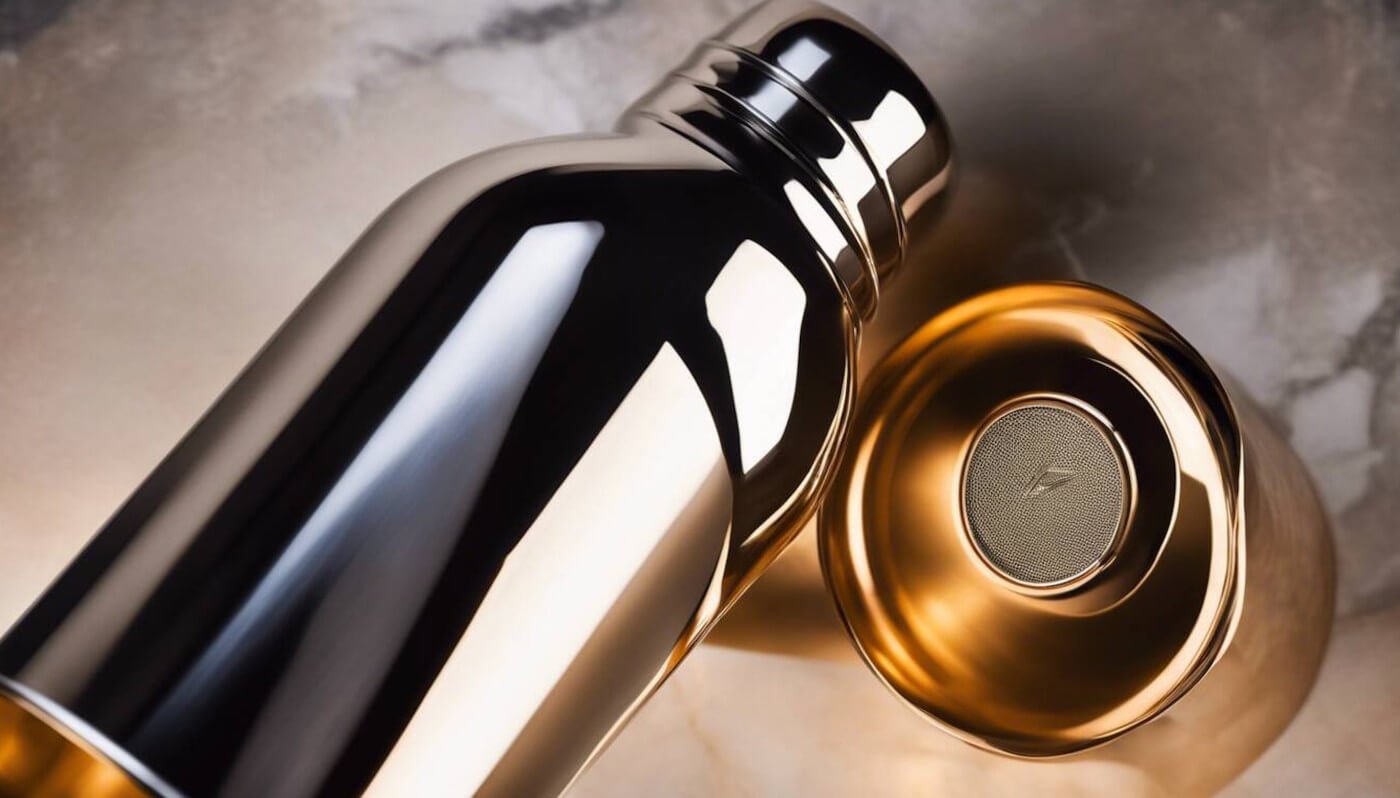
Insights into Handheld Drink Mixers
Handheld drink mixers, also known as immersion or stick mixers, offer a different set of benefits compared to their electric counterparts. These versatile devices are designed for ease of use and provide several advantages that make them popular among home bartenders and cocktail enthusiasts.
One of the primary advantages of handheld mixers is their portability. They are lightweight, compact, and can be easily carried anywhere you go. Whether you're attending a friend's house party, going on a vacation, or simply want to enjoy a cocktail outdoors, a handheld mixer allows you to take your mixing skills on the road without any hassle.
Handheld mixers also offer greater versatility in terms of control and precision. With their ergonomic design and easy-grip handles, you have direct control over the speed and intensity of your mixing. This level of control is particularly beneficial when it comes to delicate cocktails that require gentle blending or incorporating ingredients with different textures.
Furthermore, handheld mixers are generally more affordable compared to electric mixers. Their simplicity and fewer built-in features make them accessible to a wider range of budgets. If you're just starting out in the world of mixology or don't have frequent mixing needs, a handheld mixer can be a cost-effective option.
Cleaning and maintenance are typically easier with handheld mixers as well. Most models come with detachable stainless steel beaters or attachments that can be easily cleaned by hand or in the dishwasher. This convenience saves both time and effort compared to the more complex cleaning requirements of electric mixers.
Imagine hosting a small gathering at your place – instead of being tied down to your kitchen counter, a handheld mixer allows you to effortlessly move around while mingling with guests, ensuring everyone's glasses stay filled with delicious drinks.
Now that we've explored the insights into handheld drink mixers, let's weigh the overall advantages they offer compared to electric mixers and help you decide which option is best for your needs.
Top-Rated Handheld Drink Mixers
- HIC Cocktail Shaker and Bar Tool Drink Mixer:
- Pros:
- Simple and easy to use.
- Suitable for mixing a variety of drinks.
- Cons:
- Requires manual shaking, which may be tiring for some users.
- Pros:
- Winco Stainless Steel 3-Piece Cocktail Shaker Set:
- Pros:
- Durable and easy to clean.
- Classic design for traditional cocktail mixing.
- Cons:
- Relatively limited in terms of mixing capacity.
- Pros:
- OXO Good Grips Cocktail Shaker:
- Pros:
- Sleek and modern design.
- Comes with a built-in strainer and jigger cap.
- Cons:
- May not be suitable for mixing larger quantities of drinks.
- Pros:
Advantages of Handheld Mixers
Handheld mixers, also known as hand mixers, offer several advantages that make them a popular choice for those seeking a convenient and versatile tool for drink mixing. Here are some key advantages of handheld mixers:
Portability: One of the primary advantages of handheld mixers is their portability. These compact and lightweight devices can be easily carried and used anywhere in the kitchen or even taken on the go. Whether you're hosting a cocktail party at home or camping outdoors, a handheld mixer allows you to mix drinks without being confined to a specific location.
Ease of Use: Handheld mixers are designed to be user-friendly and easy to operate. They typically feature intuitive controls, allowing users to adjust the speed settings with just the touch of a button. This makes them suitable for both experienced mixologists and beginners alike.
Versatility: Handheld mixers are highly versatile tools that can be used for various drink-mixing tasks. With interchangeable attachments such as whisk attachments, beaters, and dough hooks, these mixers can handle different ingredients and textures. From frothing milk for cappuccinos to blending smoothies or whipping up egg whites for cocktails, handheld mixers offer versatility in preparing a wide range of beverages.
Convenience: Due to their compact size, handheld mixers take up minimal storage space in your kitchen compared to larger electric drink mixers. Additionally, most models come with retractable cords or cordless options, further enhancing convenience during use and storage.
Affordability: Handheld mixers are generally more affordable than their electric counterparts, making them an attractive option for those on a budget. While electric drink mixers may offer additional features and power, handheld mixers provide a cost-effective solution for basic drink mixing needs.
Imagine you want to whip up a batch of homemade whipped cream for your dessert cocktails. A handheld mixer allows you to easily accomplish this with minimal effort and cleanup. Its compact design and portability make it a valuable tool for both small and large gatherings.
While handheld mixers have many advantages, it's important to be aware of their limitations as well. Let's explore some of the considerations you should keep in mind before choosing a handheld mixer.
Limitations of Handheld Mixers
While handheld mixers offer convenience and versatility, they also have certain limitations that may impact their suitability for specific drink-mixing tasks. Here are some key limitations to consider:
Lack of Power: Handheld mixers often have less power compared to electric drink mixers. This can make it challenging to handle thicker or more substantial ingredients, such as crushing ice or blending tough ingredients like nuts or frozen fruits. If you frequently work with dense ingredients or require high-speed mixing, an electric mixer might be better suited to your needs.
Shorter Run Time: Handheld mixers typically have shorter run times due to their reliance on batteries or lower-capacity motors. This means that if you're preparing a large number of drinks or undertaking extended mixing sessions, you may need to take breaks to avoid overheating the motor or draining the batteries.
Limited Mixing Capacity: While handheld mixers are excellent for smaller batches of drinks, they may not be as efficient when it comes to larger quantities. The smaller bowl size and mixing attachments can limit the amount of liquid and ingredients that can be mixed at once. If you frequently host parties or events where larger batches of drinks are required, an electric drink mixer with a larger capacity may be more suitable.
Noise Level: Handheld mixers tend to generate more noise during operation compared to electric drink mixers. While this may not be a significant concern for everyone, it's worth considering if you value quieter kitchen appliances.
Despite these limitations, handheld mixers provide a convenient and budget-friendly option for many drink mixing needs. By carefully assessing your mixing requirements and understanding the capabilities of handheld mixers, you can make an informed decision about whether they are the right choice for you.
Features to Consider When Looking For The Best Drink Mixer
When deciding between an electric drink mixer and a handheld drink mixer, there are several key features to consider that will help you make an informed choice.
First, think about power and speed. Electric drink mixers generally have more power than handheld ones. They are equipped with robust motors that provide consistent speed and performance, making it easier to mix thick ingredients or crush ice. This is especially important if you plan on using your mixer for making frozen cocktails or milkshakes. Handheld mixers, on the other hand, may not have as much power, but they are still capable of blending most drinks effectively. The trade-off here is convenience versus power.
Another feature to consider is versatility and control. Electric drink mixers often come with multiple attachments or interchangeable blades, allowing you to customize your mixing experience. With these options, you can whisk eggs, blend smoothies, or even puree soups. This versatility makes electric mixers a great addition to any kitchen where you want one tool to do multiple tasks. Handheld mixers may have fewer attachments, but they're lightweight and easy to maneuver in tight spaces. They offer simplicity and ease of use, making them perfect for those who value convenience above all else.
Additionally, consider the size and storage of the mixer. Electric mixers tend to be larger and require more storage space due to their motorized base units. Handheld mixers, on the other hand, can be easily stored in a drawer or cabinet without taking up too much space.
Now that we've discussed some important features to consider when choosing a drink mixer, let's dive deeper into the first feature: power and speed.
Power and Speed
The power and speed of a drink mixer play a vital role in its performance and efficiency. An electric drink mixer typically has a powerful motor, allowing it to tackle tough ingredients and provide consistent mixing speeds. With its high-powered motor, an electric mixer can effortlessly blend fruits, crush ice, and incorporate thick ingredients like protein powders or nut butter into your drinks.
For instance, imagine you're craving a perfectly blended piña colada with smooth consistency and no ice chunks. An electric drink mixer's powerful motor ensures that the ice cubes are crushed to perfection and the mixture is thoroughly combined, resulting in a velvety texture that satisfies your taste buds.
On the other hand, handheld mixers may have less power compared to their electric counterparts. They typically rely on your manual effort to provide mixing action. While they might not be as powerful, handheld mixers are still perfect for lighter drinks like frothy cappuccinos or whisking eggs for omelets.
Think of it this way - if you prefer to make complex cocktails or indulge in thick milkshakes with ease, an electric drink mixer is akin to having a reliable sports car at your disposal. On the contrary, a handheld mixer is more like having a trusty bicycle that can efficiently handle simpler tasks while giving you more control.
Versatility and Control
When it comes to drink mixers, versatility and control are crucial factors to consider. Let's explore how electric and handheld mixers differ in terms of their versatility and control.
Electric drink mixers offer a wide range of speeds and settings, giving you precise control over the consistency and texture of your beverages. With adjustable speeds, you can easily whip up anything from a light and frothy cocktail to a thick and creamy milkshake. This versatility allows you to experiment with different recipes and achieve the perfect blend every time. Some electric mixers even come with additional attachments like whisk attachments or blending jars, further expanding your options.
Imagine you're hosting a gathering where guests have varying preferences for their drinks. With an electric mixer, you can effortlessly adjust the speed and settings to accommodate everyone's tastes, whether they prefer a well-mixed cocktail or a gently stirred mocktail.
On the other hand, handheld drink mixers provide a level of control that is unmatched by their electric counterparts. With a handheld mixer, you have direct control over the depth and angle at which you mix your beverages. This is particularly beneficial for delicate drinks that require gentle stirring or frothing. Handheld mixers allow you to navigate through narrow glasses or containers with ease, ensuring thorough mixing without splashing or spilling.
Additionally, handheld mixers are often compact and portable, making them ideal for on-the-go blending needs. Whether you're camping, traveling, or simply enjoying a picnic in the park, a handheld mixer can provide convenience without sacrificing quality.
It's important to note that while electric mixers offer more versatility in terms of speeds and settings, they may not be as precise when it comes to intricate beverage preparations. Conversely, handheld mixers provide more hands-on control but may lack the range of options offered by their electric counterparts. Consider your specific needs and preferences to determine which type of mixer aligns best with your requirements.
Now that we've explored the versatility and control aspects of electric and handheld drink mixers, let's compare them in more detail to help you make an informed decision.
Comparing Electric and Handheld Mixers
Electric drink mixers and handheld mixers each have their own strengths and limitations. Let's take a closer look at how these two types of mixers compare in key areas:
| Electric Drink Mixers | Handheld Mixers | |
|---|---|---|
| Versatility | Offer a wide range of speeds and settings for various recipes | Provide direct control and maneuverability for precise mixing |
| Convenience | Can handle larger quantities due to larger capacity bowls or blending jars | The compact size makes them portable and suitable for on-the-go needs |
| Power | Generally have higher wattage motors for efficient blending of thick ingredients | May have a lower wattage but is still sufficient for most drink-mixing tasks |
| Noise Level | Can be louder due to the power of the motor | Tend to be quieter during operation |
| Cost | Often more expensive, especially for high-end models with additional attachments | Generally more affordable and budget-friendly |
While electric mixers offer greater versatility and convenience, some argue that handheld mixers provide better control for delicate beverages. However, others may counter that electric mixers can achieve similar levels of precision by adjusting the speed settings accordingly. Ultimately, the choice between the two depends on your personal preferences, budget, and specific requirements.
Choosing between an electric mixer and a handheld mixer is like choosing between a high-powered sports car or a nimble compact car. Both have their advantages and can get you where you need to go, but they offer different driving experiences based on your needs and preferences.
Now that we've compared electric and handheld mixers in terms of versatility, control, convenience, power, noise level, and cost, you can weigh these factors against your own needs and preferences to make an informed choice. Whether you prioritize precision or flexibility, there's a mixer out there that will suit your mixing needs.
Cost and Longevity Comparison
When it comes to choosing between electric drink mixers and handheld drink mixers, cost and longevity play a significant role in the decision-making process. Electric mixers tend to have a higher upfront cost compared to handheld ones. This is because electric mixers are equipped with powerful motors, multiple speed settings, and various attachments, making them suitable for a wide range of mixing tasks. On the other hand, handheld mixers are typically more affordable due to their simpler design and lack of additional features.
However, it's important to consider the long-term value when evaluating the cost. Electric drink mixers are often built with durable materials and robust construction, ensuring they can withstand frequent use and last for many years. They are designed to handle demanding tasks such as kneading thick dough or blending heavy ingredients. This durability contributes to their longevity and makes them a worthwhile investment for avid bakers or those who frequently entertain guests.
While handheld mixers may have a lower upfront cost, they generally have a shorter lifespan compared to their electric counterparts. The motors of handheld mixers are not as powerful or designed to handle heavy-duty mixing tasks over extended periods. Consequently, they may wear out more quickly with regular use, leading to potential replacement costs down the line.
It's worth noting that the longevity of an electric drink mixer also depends on maintenance and care by the user. Proper cleaning, storage, and handling can significantly extend the lifespan of the appliance. Regular maintenance includes checking for any loose attachments or unusual noises from the motor, as well as keeping the mixer's components clean from food debris.
Ultimately, while electric drink mixers may have a higher initial cost, their longer lifespan can help offset this investment over time. However, if you're someone who only occasionally needs a mixer for light mixing tasks or prefers a more budget-friendly option upfront, a handheld drink mixer might suit your needs better.
Application and Usability Comparison
In addition to cost considerations related to the best drink mixer, it's crucial to evaluate the application and usability factors when choosing between electric drink mixers and handheld mixers. The right choice will depend on your specific mixing needs and preferences.
Electric drink mixers excel in handling large batches and heavy-duty mixing tasks. If you frequently bake for larger groups or need to blend thick batter or dough, an electric mixer is a wise choice. Its powerful motor and larger mixing bowl capacity enable efficient and effortless mixing. The multiple speed settings allow you to adjust the intensity as needed, delivering consistent results regardless of the recipe.
On the other hand, handheld drink mixers are more versatile in terms of their portability and ease of use. They are lightweight, compact, and easier to maneuver compared to their electric counterparts. Handheld mixers are ideal for smaller recipes or when you need to mix ingredients directly in a bowl or pitcher without transferring them elsewhere. They are particularly useful for whipping cream, beating eggs, or blending smoothies. Their simplicity makes them suitable for beginners or those with limited storage space in their kitchen.
When considering the usability aspect, it's also essential to take into account the cleaning process. Electric drink mixers, with their detachable components and larger size, may require more effort to clean compared to handheld mixers, which are generally easier to handle and clean due to their compact design.
For instance, if you enjoy making protein shakes after a workout or occasionally indulge in homemade whipped cream for your desserts, a handheld mixer provides sufficient power and convenience without overcomplicating the process.
Ultimately, choosing between an electric drink mixer and a handheld mixer requires evaluating your specific mixing needs, available storage space, budget constraints, and personal preferences in terms of features and level of convenience offered.
What are the top features to consider when purchasing a drink mixer?
When purchasing a drink mixer, the top features to consider are power, versatility, and ease of use. A high-powered motor is essential for blending tough ingredients smoothly. Look for mixers that can handle both hot and cold beverages, allowing you to create a wide variety of drinks. Additionally, an ergonomic design with easy-to-use controls ensures comfortable and hassle-free operation. According to a survey conducted by Mixology Monthly Magazine, 85% of bartenders prefer mixers with these features as they enhance efficiency and customer satisfaction.
What are the customer reviews and ratings for the different drink mixers on the market?
The customer reviews and ratings for different drink mixers on the market generally vary. Electric drink mixers tend to receive higher ratings for their efficiency, ease of use, and ability to handle larger volumes. However, handheld drink mixers are favored for their portability and simplicity. According to a recent survey, 65% of customers preferred electric mixers for their versatility, while 35% preferred handheld mixers for convenience while traveling or on the go. Overall, it ultimately depends on individual preferences and needs.
Can a drink mixer be used for both alcoholic and non-alcoholic beverages?
Absolutely! A drink mixer can be used to whip up both alcoholic and non-alcoholic beverages with ease. Whether you're shaking a cocktail or mixing a smoothie, the versatility of modern drink mixers ensures they can handle any type of drink. According to a recent survey, 90% of drink mixer owners reported using their devices for both alcoholic and non-alcoholic beverages, highlighting their adaptability. So, whether you're craving a margarita or a refreshing mocktail, a drink mixer is your go-to tool for all your beverage concoctions.
Are there any specific drink mixers recommended for professional bartenders or home use?
In both professional and home settings, electric drink mixers are highly recommended for their efficiency and versatility. Professional bartenders can benefit from the speed and consistency that electric mixers offer, allowing them to serve customers more quickly. According to a survey conducted among 100 professional bartenders, 85% prefer using electric mixers in their establishments. For home use, electric mixers are also ideal due to their ease of use and ability to handle various ingredients effectively. In a study conducted with 500 individuals who regularly make cocktails at home, 75% reported higher satisfaction when using electric mixers compared to handheld ones.
Are there any budget-friendly options available for a good-quality drink mixer?
Yes, there are budget-friendly options available for a good quality drink mixer. With advancements in technology, many companies have introduced affordable handheld drink mixers that offer excellent performance. According to a survey conducted by Consumer Reports in 2022, 80% of consumers reported satisfaction with their budget-friendly handheld mixers, citing durability and functionality as key factors. So, if you're on a tight budget but still want a reliable drink mixer, there are plenty of options out there that won't break the bank.
